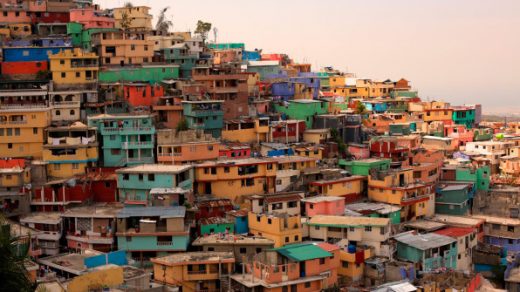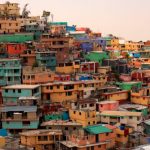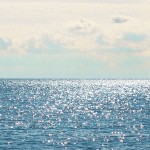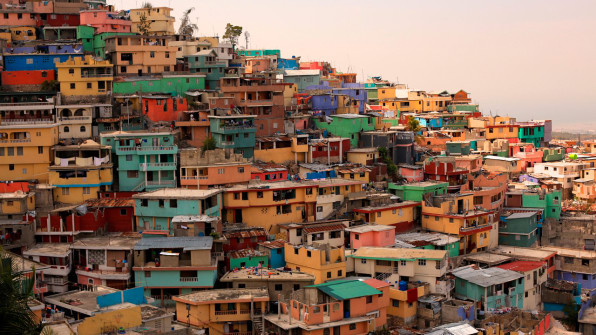This Nonprofit’s “Guerilla Humanitarianism” Is Increasing Global Access To Clean Water
Nearly 2 billion people around the world still regularly drink water teeming with fecal matter and other pathogens, and more still suffer the consequences of contaminated pipes and storage units, as well as poor and irregular water treatment practices (not to mention fraud and illegal access). More than 600 million people still rely on unimproved sources, and even “improved” sources aren’t necessarily safe.
Former pro surfer Jon Rose says he has a simple, $50 solution. Rose’s nonprofit, Waves for Water, specializes in last-mile delivery of life-improving technology–in this case, water filters and faucet attachments made by the American outdoor company Sawyer. Over the last seven years, 150,000 of these filters have made their way to two dozen countries around the world, from the favelas in Rio de Janeiro to mountain villages of Nepal, and even to an active war zone by piggybacking on U.S. military supply lines routed to Afghanistan. Many of these filters are delivered by the organization’s “couriers,” backpackers, surfers, and hikers who volunteer to carry the filters to the areas they’re visiting.
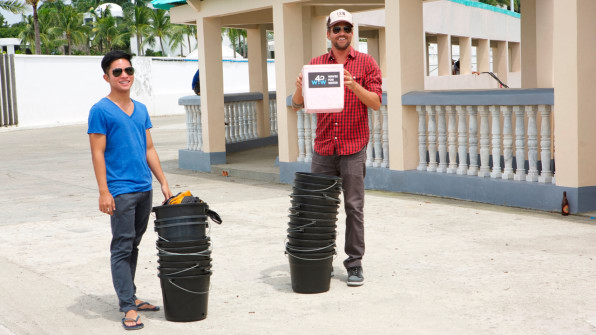
Board member Jordan Tappis, in the company’s just-released Red Bull TV documentary, jokes that Waves for Water’s distribution operation compares to that of a drug cartel, keeping under the radar and working around red tape. Filters are packed into large duffel bags, carried undeclared through customs, and delivered into the field.
Waterborne illnesses, including typhoid and cholera, are the leading cause of death in the world, taking the lives of more than 3 million people each year. But they’re preventable: Waves for Water’s trusted 0.1-micron hollow membrane filters remove 99.9% of the disease-causing bacteria and protozoa from water sources, whether that be giant cisterns full of rainwater or buckets filled to the brim with water from the nearest river.
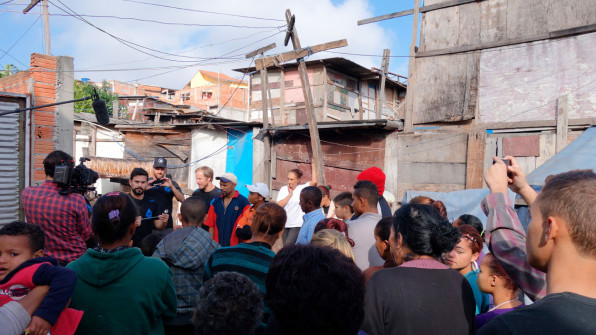
“You’ve got scientists that have done the work in creating the technology but they don’t know who needs it or how to get it there and you have people who need it but don’t know it exists. We’ve become the bridge between those two things,” Rose tells Fast Company. “The filters we use are the superior technology out there right now, in our opinion.”
Once attached, each filter can provide 100 people with clean drinking water for at least five years. They always come free of charge, but also with complementary training in at least one local language from key community partners–no surprise, they’re often individual women who know the culture and a family’s needs best. In every demonstration, Rose and his team turn dirty copper-colored water clear and, in good faith, gulp it down first. “I don’t ever ask a community for their trust,” says Rose. “I even say, ‘Do not trust me, you don’t know me. Trust the technology, period.’ ”
Waves for Water’s flagship courier program is designed to “empower the masses to help solve the world water crisis,” and essentially turns tourists into activists. It makes it easy for travelers headed to destinations affected by the water crisis to act as agents of change, paying for and then carrying filters with them wherever they go, for use by Waves for Water directly or by other established aid organizations. To date, more than 600 couriers, including pro surfer Carissa Moore, have delivered as many as 4,000 water filtration systems in 75 countries around the world.
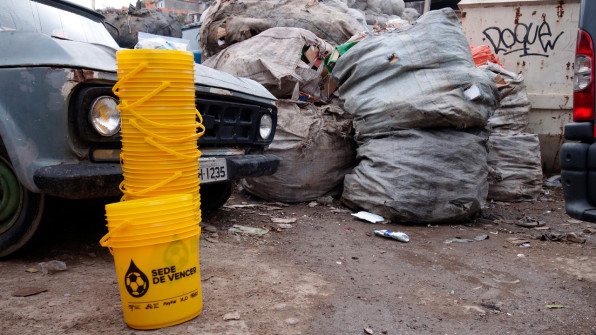
The nonprofit also runs a crowdfunding platform so that couriers can call on friends and family to finance the purchase of filters, whether it’s one filter or one hundred, instead of having to pay for the technology out of pocket.
United Nations official William Gardner, who serves as an advisor, calls Rose a “natural humanitarian” who hasn’t made any mistakes. That may be true, but it doesn’t mean it’s always been easy for Rose, who, after retiring from surfing in his late 20s, split with his wife and fell on hard times before finding his mission on the other side of the world.
In 2009, Rose, broke, was begged by friends to join their surf trip in Indonesia. He gave in, and packed 10 filters in his bag to distribute in Bali as a small act of charity on his way home to the U.S. While there, a 7.6-magnitude earthquake rocked West Sumatra, leaving thousands dead or severely injured. Rose responded, flew to the disaster area, Padang, and put the filters he’d packed to immediate public use.
A few months later, he found himself in Port-au-Prince, Haiti, to assist in relief efforts after the 2010 earthquake. “I lived in a tent for six months, and stayed in Haiti for two years after that,” Rose says, getting by with few comforts other than expired cans of Chef Boyardee and a realization of the positive impact he could have in the world just by distributing filters: “I was thrust into an extreme situation, and it was so clear at that point in time that doing good wasn’t a passion, it had become an obsession.”
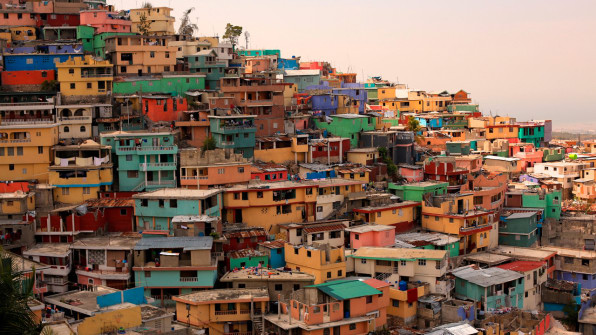
Rose has since launched 105 programs in 27 countries, positively impacting more than 7 million people through the distribution of water filters and the installation of wells and rainwater harvesting systems. Waves for Water, already “the first nonprofit to team up with a U.S. military battalion” for projects in eight countries, recently launched a new program: Clean Water Corps. It’s a military veteran-led clean water task force, spearheaded by Rob McQueen, a former U.S. Army captain with years of experience in disaster response and stability operations.
Rose says he’s forever been “allergic to injustice,” and Waves for Water’s participation in global disaster relief efforts over the last few years are testament to that.
I asked how he’s measuring the success of his projects, long-term.
“Success, to me, is having kids look at this as something cool, or as a viable career path,” says Rose. “Because if, all of a sudden, we have a huge percentage of people doing this work as a profession, the world will change.”
Fast Company , Read Full Story
(39)

